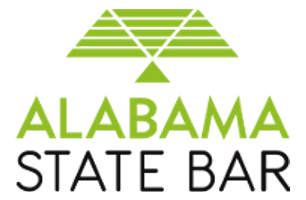Lenders earn millions of dollars in late payment fees. They are always eager to claim loan payments were received late and charge “defaulters” hefty fees. Additionally, it is very common that my Chapter 13 bankruptcy clients get into a dispute with their mortgage company over missed payments.
On a recent occasion, I had a client call me upset after her mortgage was transferred to a new company (this happens all the time). The new mortgage company almost immediately began sending my client a monthly mortgage statement stating that she was six (6) months behind on her payments. I told my client, “no problem, bring me proof that you made all your monthly mortgage payments.”
My client quickly came by the office and brought me a sack of money order receipts where she had been purchasing money orders to pay her mortgage company. She was proud that she had the documents we needed to begin to deal with the problem. However, she was shocked to hear that the money order receipts that she brought to me were nothing more than proof that she purchased a money order. To add insult to injury, my client was paying a fee to purchase each money order.
Cost associated with tracking a money order
So what next?
We picked up the phone and called Western Union and spoke with a customer service representative regarding the procedure for my client to obtain proof that her money orders were actually cashed by her mortgage company. We were sort of shocked by the answer.
According to Western Union, if you have the bottom half of the money order receipt it costs $15.00 to trace, research and provide proof of who cashed your money order. If you only have a copy of your store receipt of where you purchased your money order, it is $30.00 to trace, research and provide proof of who cashed the money order. This can get very expensive if you are having to track down multiple payments. As you can see, this can get very expensive.
We were informed by Western Union that it takes a minimum of 30 days to track a single money order if you have the bottom half of your receipts.
If you do not have the bottom end of your store receipt, it takes approximately six (6) to eight (8) weeks to track your single money order. If time is of the essence, this could be a major problem.
You bear the burden of proving the money orders were cashed by the mortgage company
If a dispute arises between you and your mortgage about ongoing monthly payments, producing copies of your money gram or money order receipt is not proof of payment. If such a dispute arises, it will be difficult and costly to track down the payments and prove that the mortgage company cashed your money gram or money orders. If the money order cannot be tracked, you are regarded as a defaulter although you made the payments.
We advise clients that it is best practice to pay your monthly mortgage payment through your own bank account if possible. These monthly mortgage payments could be made via electronic transfer, bill pay, old fashioned paper check or some other form of payment. It is a good idea to print or save your bank statements each month so you have proof that your monthly payment was made. Not printing or saving your bank statements each money could also be problematic if you change banks or your bank closes. You may lose access to your online banking account or get charged a fee from your bank to print you bank statement at some later date.
It’s advisable to consult a lawyer if you get into a dispute with your mortgage company over missed payments or if you mortgage company changes and now you have unexplainable fees or expense to show up on your mortgage statement. If you would like to email or call us to help you work through these issues, remember we are just an email or phone call away.





